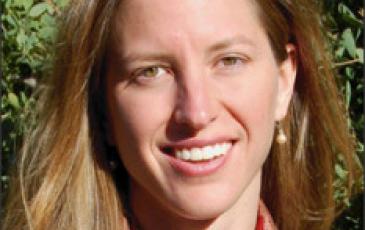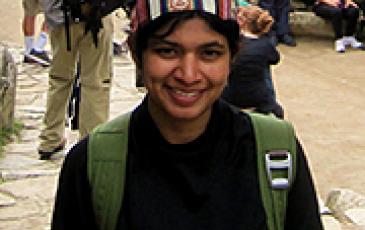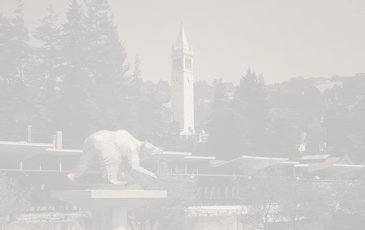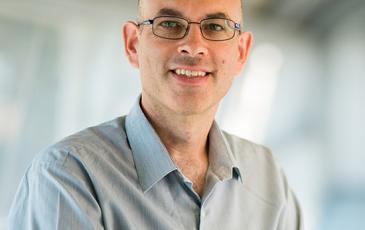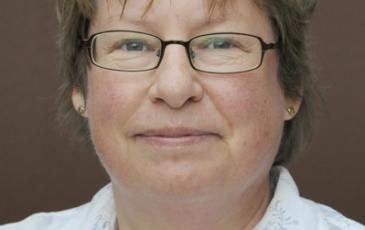Sophien Kamoun is a senior scientist at the Sainsbury Laboratory and a professor at the University of East Anglia. His group studies how filamentous plant pathogens, such as the Irish potato famine pathogen Phytophthora infestans, infect plants, and the plant processes that are modulated by these pathogens.
Past PMB Seminars
For a schedule of all Plant & Microbial Biology events, seminars, and lectures visit our calendar.
Noah Whiteman: Milkweeds and mustards: a tale of two toxins
Noah Whiteman, Ph.D. is an associate professor in the Department of Integrative Biology at UC Berkeley and the Principal Investigator of the Whiteman Laboratory. Their research follows from Charles Darwin and Alfred Russell Wallace, who focused on the evolution of traits shaped by biotic interactions (interactions between organisms).
Daniel Ducat: Tapping cyanobacterial potential as an alternative carbohydrate feedstock: design of modular, light-driven microbial consortia
Daniel Ducat is an assistant professor in the Department of Biochemistry and Molecular Biology. His lab is interested in using engineering and synthetic approaches to examine the biology and biotechnological application of these intriguing bacteria. He earned his Ph.D. in Molecular and Cell Biology at Johns Hopkins University.
Elizabeth Sattely: Buchanan Lecture: Discovery and Engineering of Plant Chemistry for Plant and Human Health
Elizabeth Sattely is an Associate Professor and HHMI Investigator in the Department of Chemical Engineering at Stanford and a Stanford ChEM-H Faculty Fellow. She also serves as an Honorary Adjunct Staff Scientist at the Carnegie Institution of Science. Dr. Sattely completed her graduate training at Boston College in organic chemistry and her postdoctoral studies in biochemistry at Harvard Medical...
Dipti Nayak: CRISPR-guided insights into the physiology and evolution of methanogenic archaea
Dipti Nayak, Ph.D. is a new assistant professor in the Department of Molecular and Cell Biology at UC Berkeley. Their research falls at the intersection of microbial physiology and evolution. They received a Ph.D. at Harvard University in the Department of Organismic and Evolutionary Biology and a Masters from the Department of Civil and Environmental Engineering at Stanford.
Dr. Nir Lahav: What is Consciousness?
What is consciousness, exactly? Does the brain create it? Or is a spiritual phenomenon that can't be reduced to matter? In most of human history, these kinds of questions were studied solely by philosophers. But in the last two decades, the question of consciousness has reached the fields of neuroscience and even physics. In this PubScience, we will consider why consciousness is so interesting...
SLAM: Leading and Negotiating Effectively
When you register, you will have the opportunity to indicate specific...
Roy Kishony: Predicting Antibiotic Resistance
Roy Kishony is the Marilyn and Henry Taub Professor of Life Sciences, the director of the Lorry I. Lokey Interdisciplinary Center for Life Sciences and Engineering, and a Faculty of Biology. Combining novel quantitative experimental techniques and clinical studies with mathematical modeling and advanced data analysis, Kishony's lab is studying microbial evolution with a specific focus on...
Jill Banfield: Mysteries of the Invisible World of Microbes
Jill Banfield is the director of microbial research in the Innovative Genomics Institute and a CZ Biohub investigator. She studies microbial communities and their roles in shaping soil and groundwater biogeochemistry as well as human health. She is a Fellow of the Royal Society, the Australian Academy of Science and the National Academy of Science
Jane Parker: Analysis of NLR immunity signaling across plant species
Jane Parker studies resistance pathway dynamics in plant immunity at the Max Planck Institute in Germany. She is also an associate professor at the Institute of Genetics University of Cologne. Current Projects in the lab are host intracellular pathogen recognition and mobilization of resistance pathways, steering the plant stress hormone network in effector-triggered immunity. and plant immunity...





